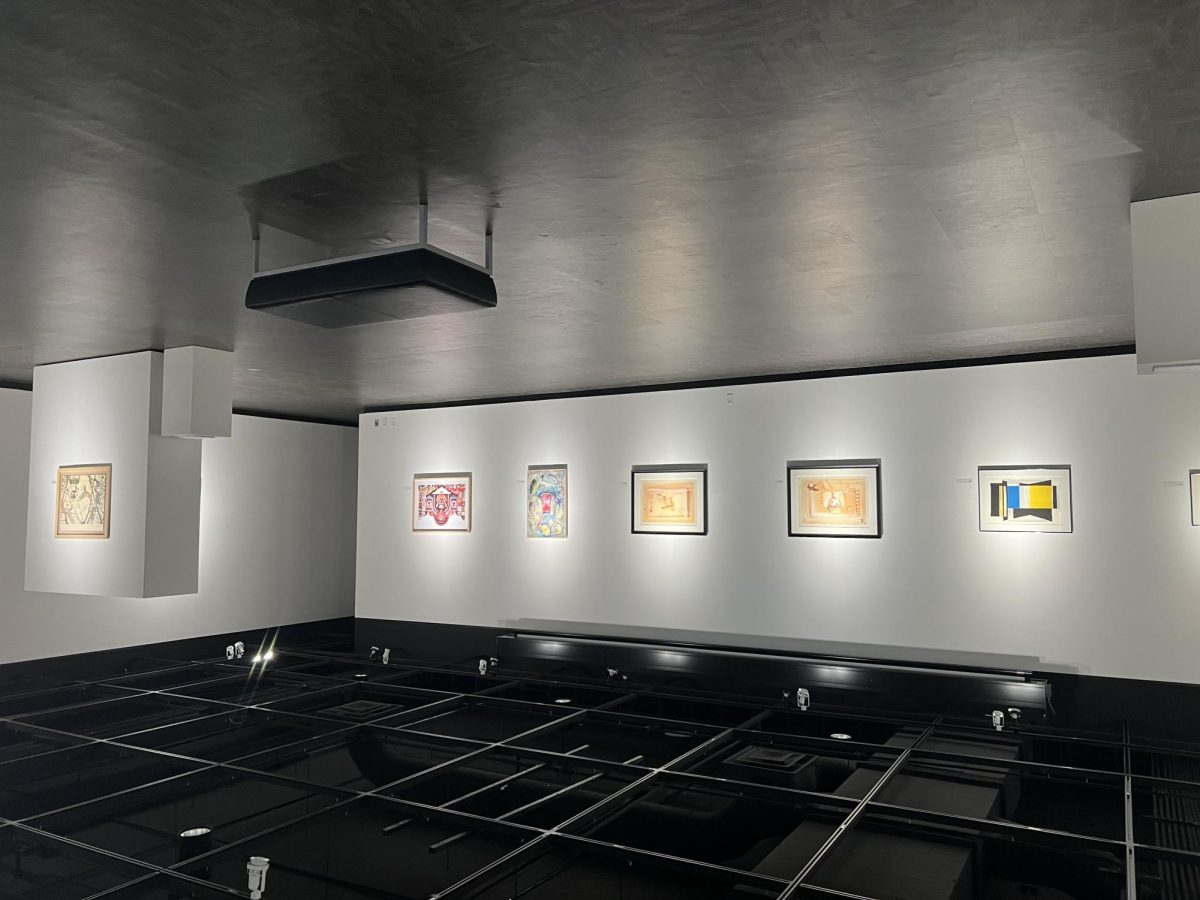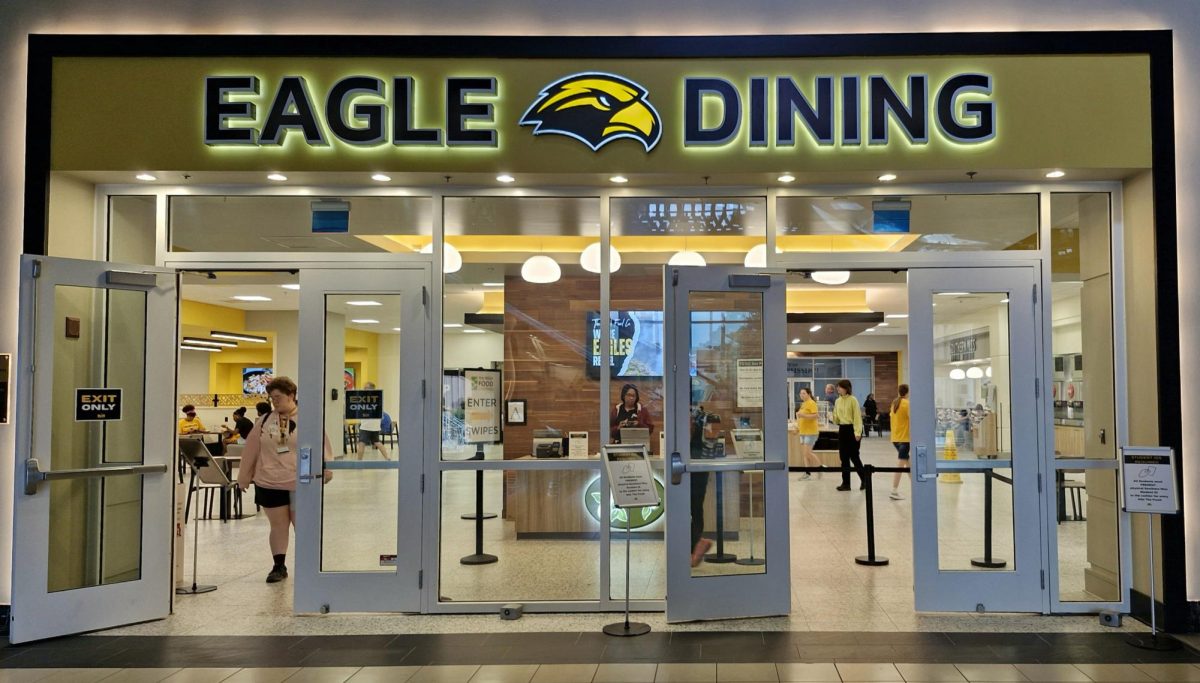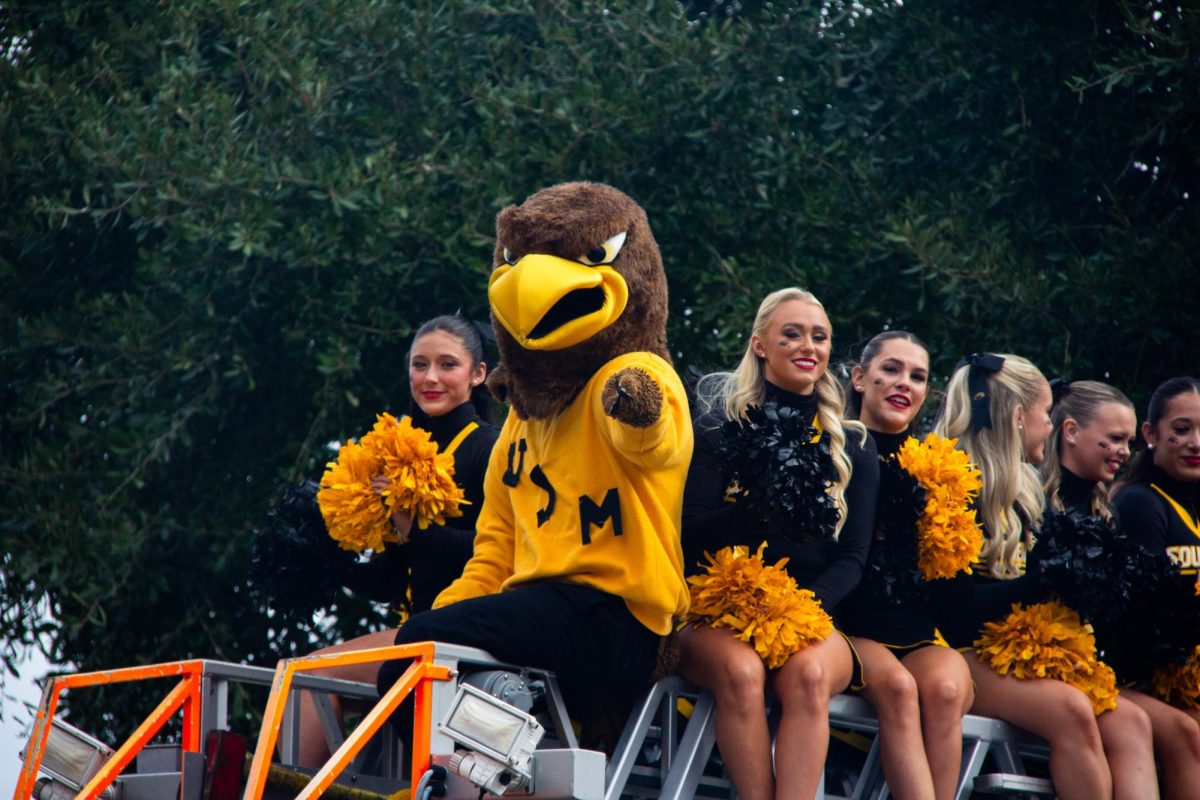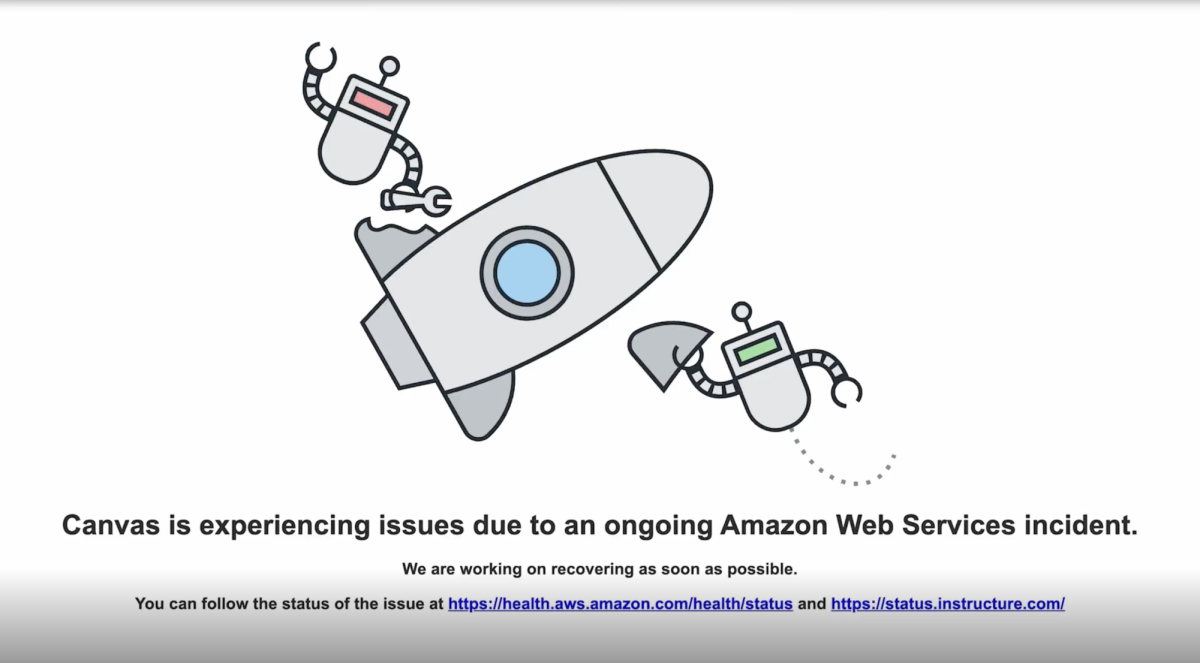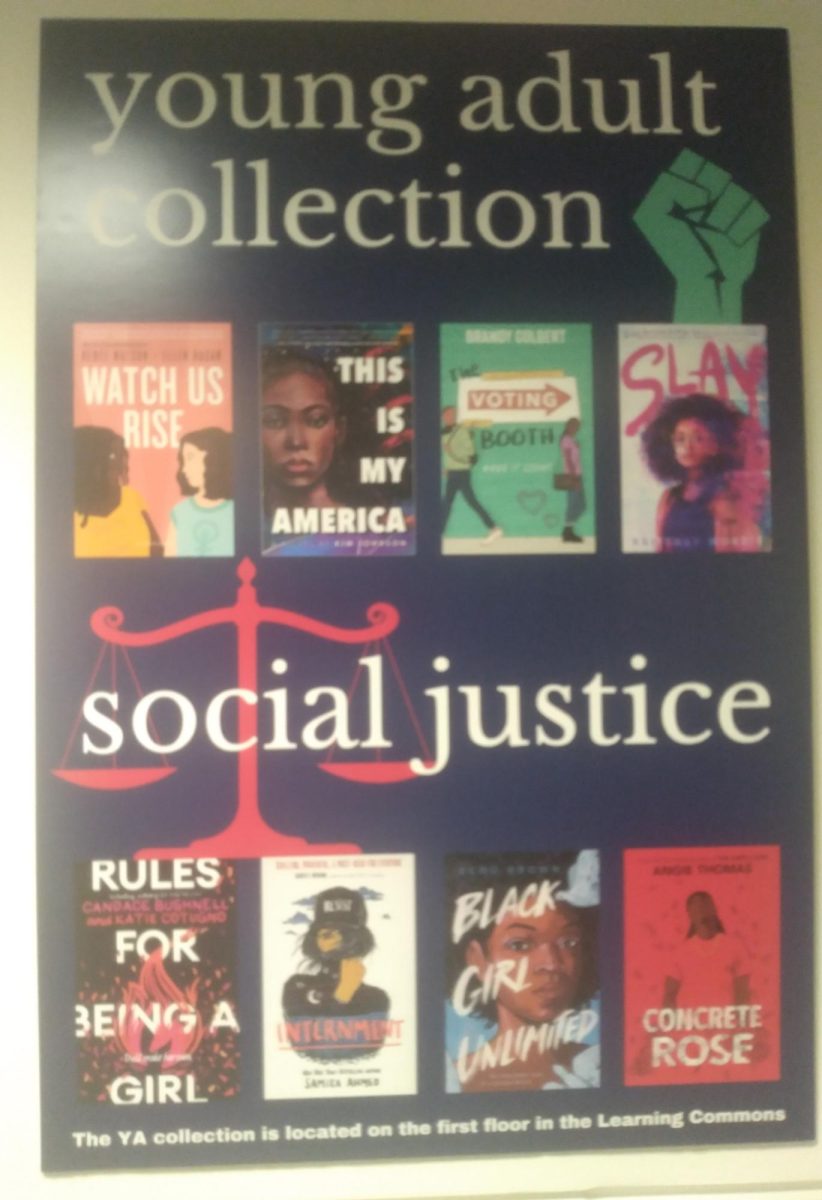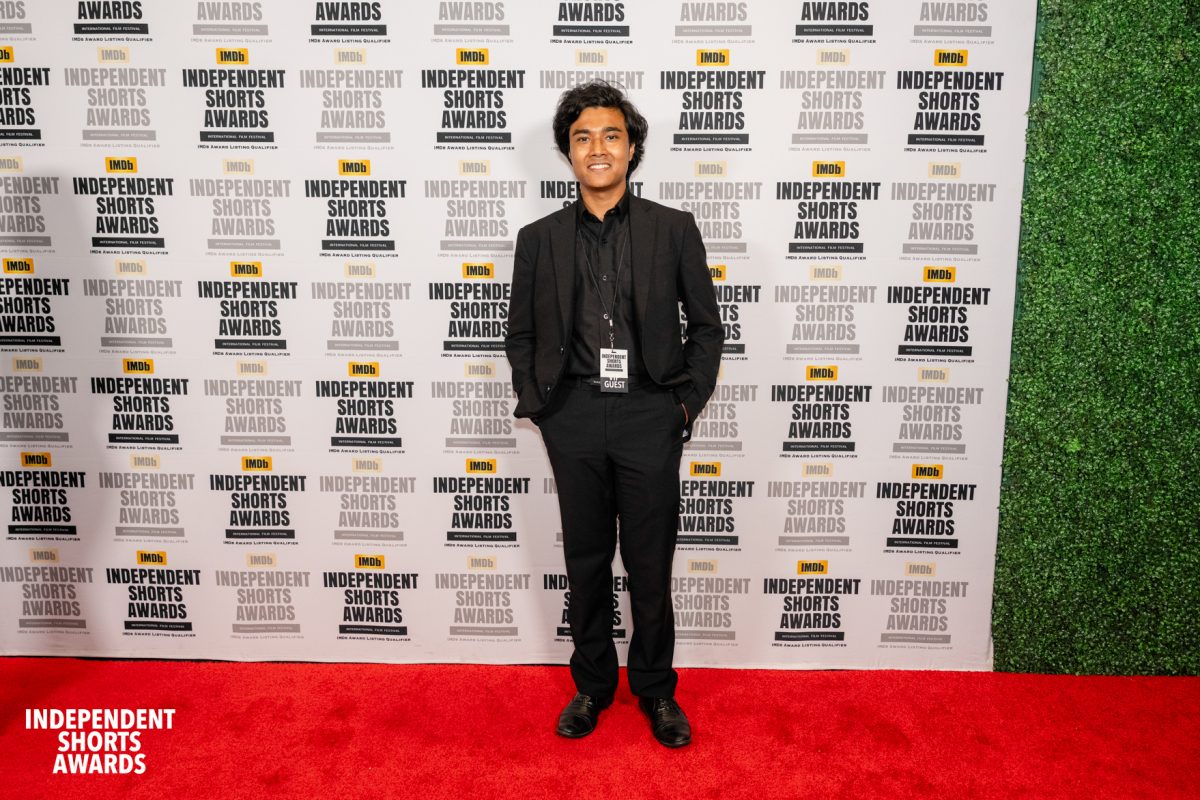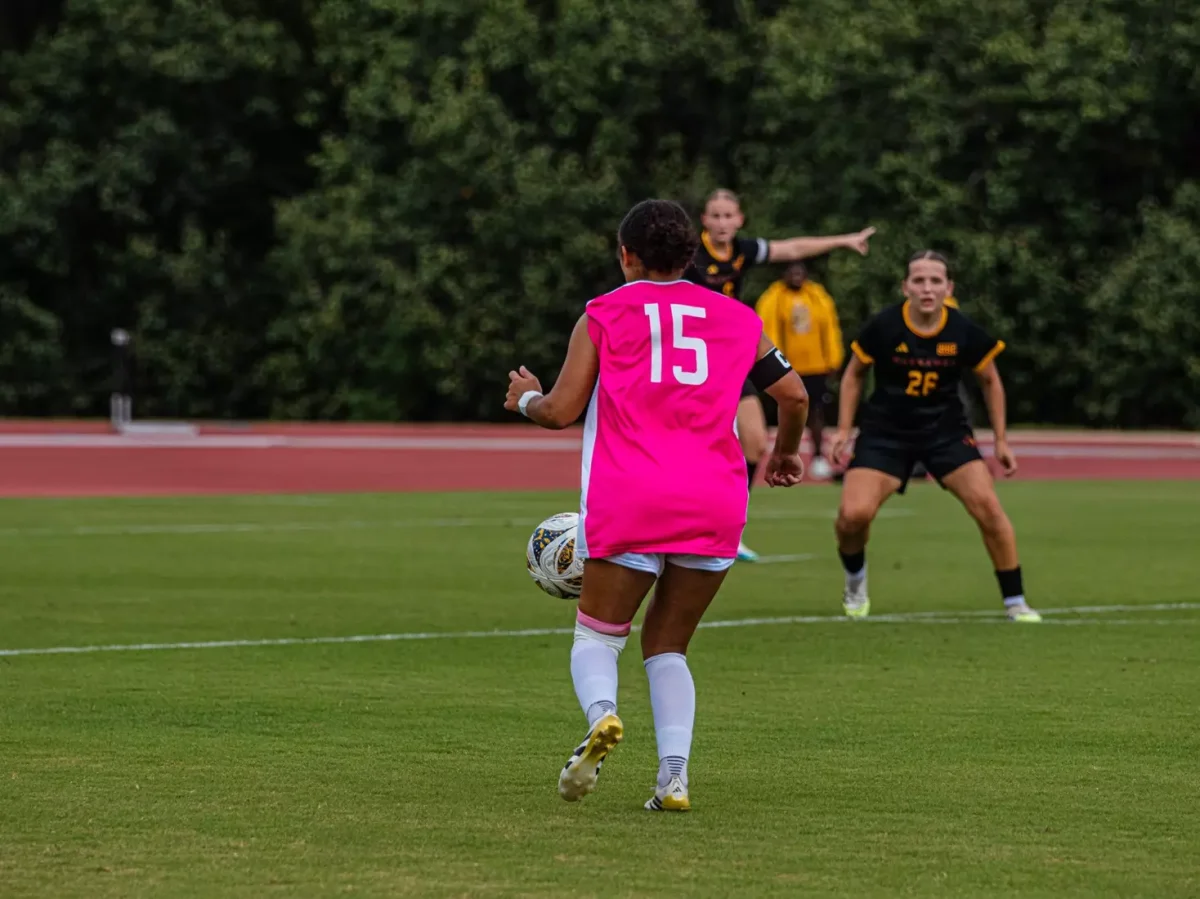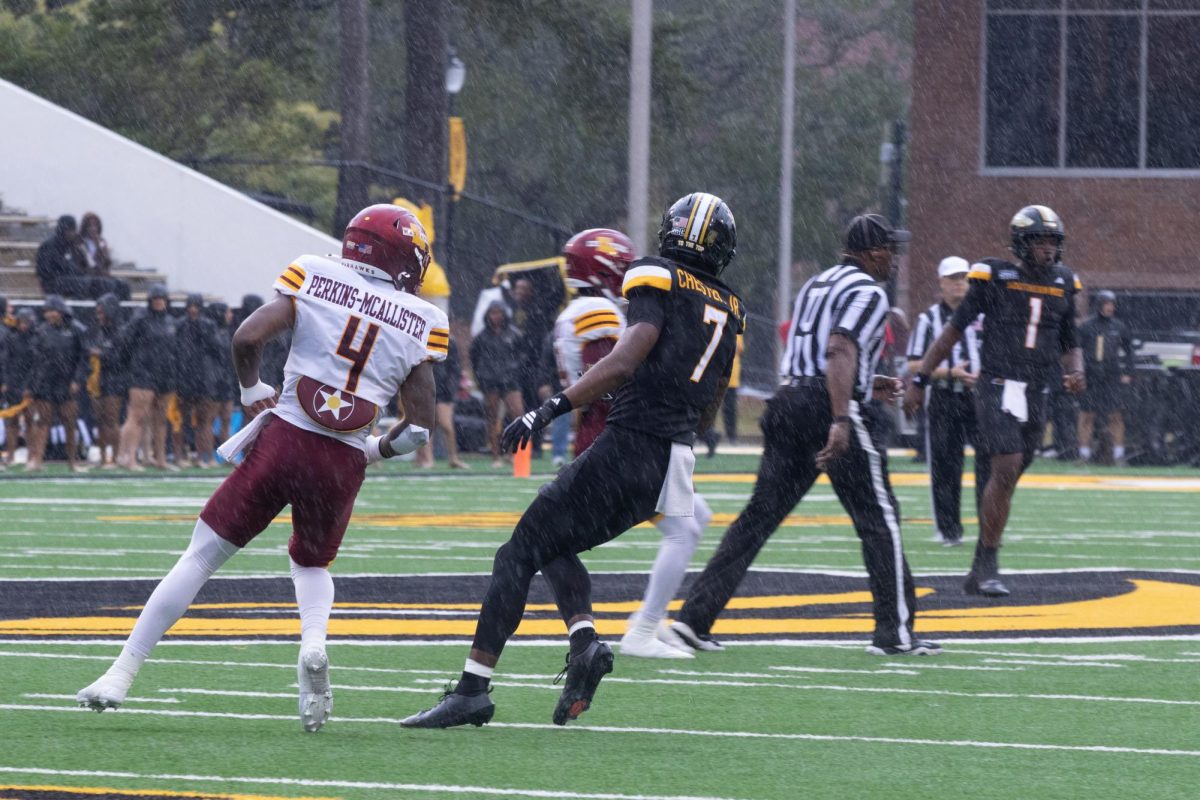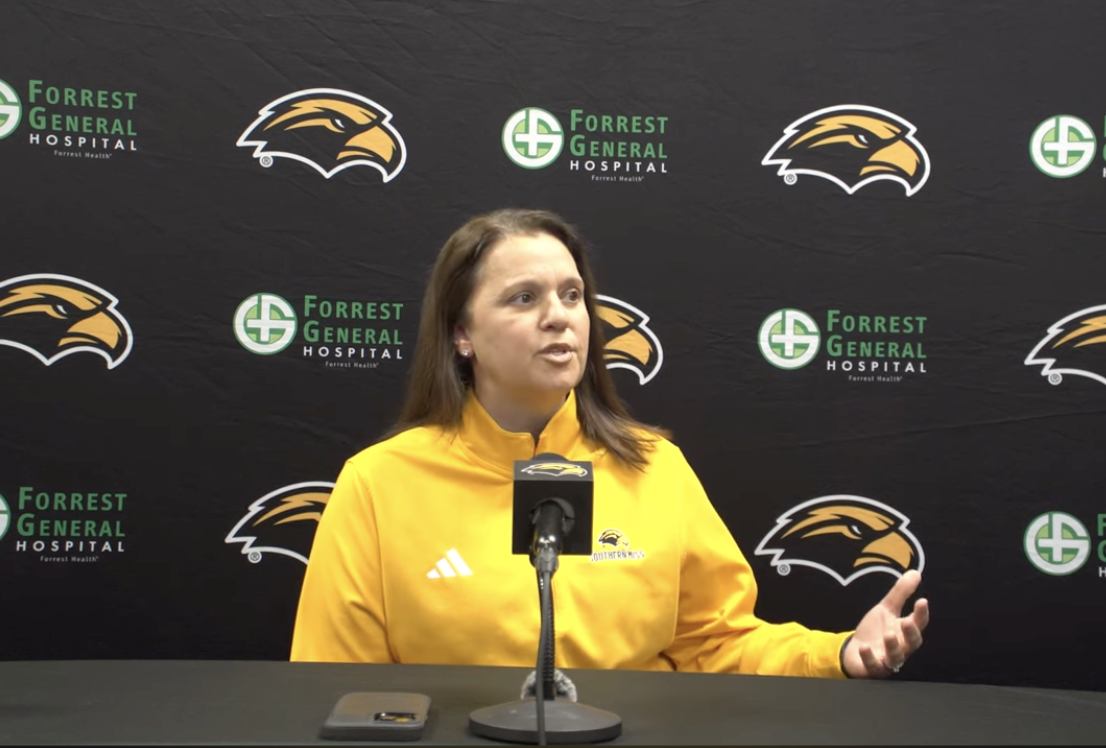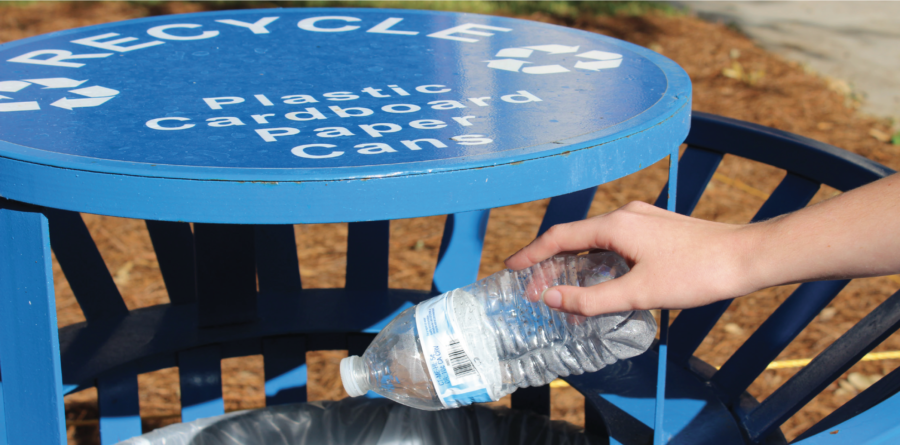The Office of Sustainability and the Student Government Association are working toward a more eco-friendly campus through different programs.
Map of recycling bins on campus by Caleb McCluskey
The cans had an issue, according to Potvin, that involved students putting incorrect or nonrecyclable items in the cans, but they found the solution in changing the signage.
Manager of Sustainable Operations Leslee Potvin said they started a program over the summer that included adding five recycling cans next to trash cans around campus. Potvin said the idea came from having the five unused cans in storage. They painted the cans blue and gave them proper recycling signage.
“We started a pilot program over the summer to expand our indoor recycling services to the outdoors,” Potvin said. “The only problem with the original recycle sign was that we were getting lots of cardboard disposable cups which are plastic or wax-lined and cannot be recycled.”
She also said paper trash must be dry to recycle, which is difficult to accomplish with outdoor cans, so their solution was to remark the blue cans to say plastics and cans only. The trash cans titled “LANDFILL” cans adjacent will take everything as a common can.
The Office of Sustainability takes everything recycled and puts them into large bins in the physical plant parking lot; they transport these large bins to two off-campus businesses that deal with recycling, according to Potvin.
“All recyclables collected are taken to FV Recycling in Sumrall and RA Recycling in downtown Hattiesburg,” Potvin said.
The office made $16,451 in 2016-17, $18,222 in 2017-18 and $10,830 in 2018- 19 with an average of $433.20 on each deposit, but Potvin said these numbers are skewed slightly due to the money they receive on several deposits made from stolen bikes, missing locks and keys. The Office also makes money through bike rentals, which can range from $500 to $1200 a school year.
“USM does receive a rebate on some recyclable material,” Potvin said. “Due to commodity prices being so low at this time, we only receive a rebate on baled cardboard, sorted office paper and scrap metal.”
The Office of Sustainability is not the only entity on campus looking toward a greener future. SGA Senator and sophomore political science major Cynthia Myles is the chairperson of the campus living committee, which works on topics like sustainability.
“I agree with the increase of bins, but we have to promote and motivate students to recycle,” Myles said. “They see [recycling] bins, but they sometimes just throw regular trash in bins.”
Senior nursing major Joshua Robinson agreed with Myles when she said he recycles when it is convenient and that students should get more motivated to recycling in general.
“I never search for recycling bins, but with these new bins, I’m more likely to recycle,” Robinson said.
Recycling is not the only way to make the campus more eco-friendly, according to Myles. She said she and her committee started research into making the school more sustainable with various means such as reusable cups and solar panels.
“We’re here to make the campus more eco-friendly. So far we’ve done research into replacing the styrofoam in the cafeteria,” Myles said. “Basically, we are trying to get more biodegradable containers [on campus] because styrofoam is relatively expensive.”
Myles said sustainability is a broad issue that affects everyone not only on campus but also in the world and needs to be considered more.
“The university [and] SGA we have a duty to promote the idea of recycling. We have to motivate students to recycle. We need to teach them how [pollution] is affecting our planet,” Myles said.

